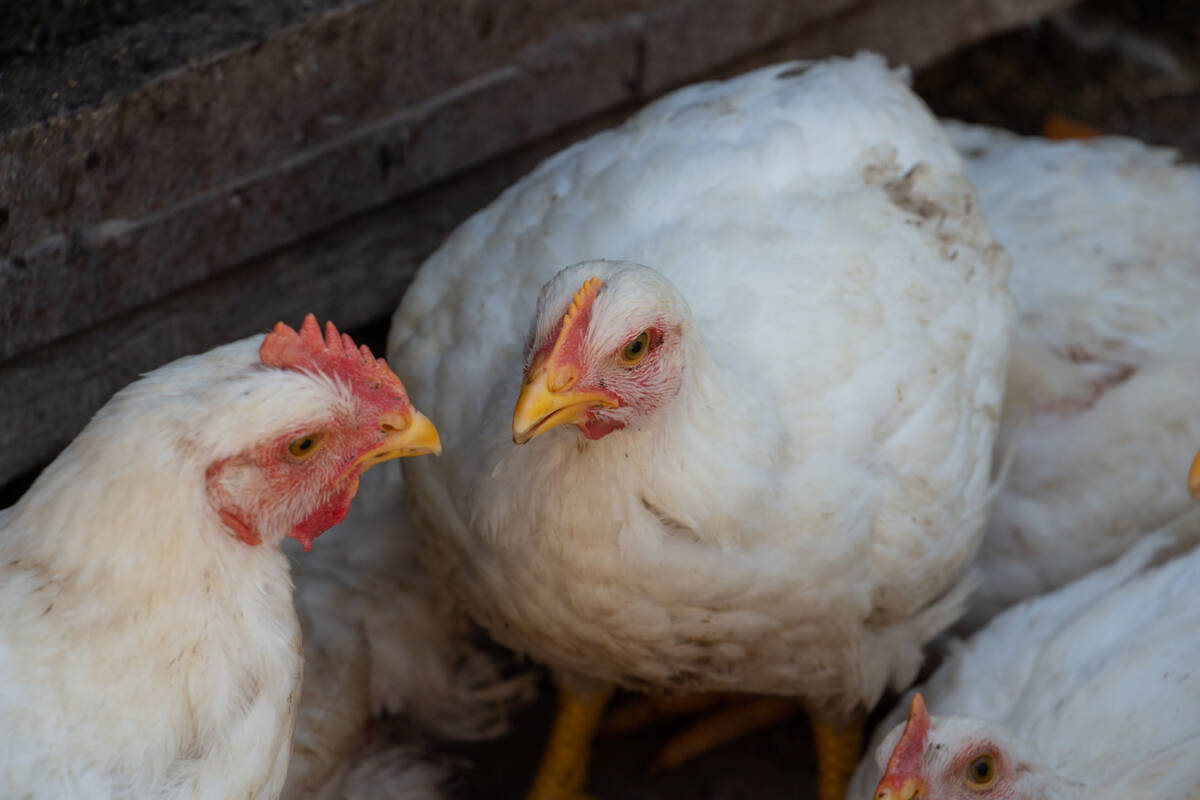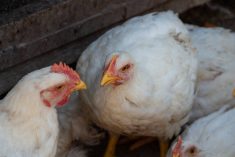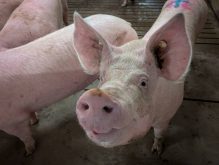Horse patients are again welcome at Saskatoon’s Western College of Veterinary Medicine, which resumed equine services at its Large Animal Clinic on Wednesday morning.
The University of Saskatchewan-based veterinary college had voluntarily suspended equine clinical services June 21 following a confirmed diagnosis of equine herpes virus, type 1 (EHV-1) in a Saskatoon-area horse brought to the clinic June 18.
That horse, which was euthanized June 19 due to the severity of its illness, has since been confirmed as having had the neurologic form of EHV-1, also known as equine herpesvirus myeloencephalopathy (EHM).
Read Also

Chicken, eggs benefit from demand for economical protein
Strong demand for protein and status as an economical alternative to beef bodes well for chicken and egg demand in 2026 according to recent analysis from Farm Credit Canada.
Since that time, none of about two dozen horses housed in or outside the Large Animal Clinic have shown clinical signs of EHV-1 and all have tested negative for the disease, the college said in a release Wednesday.
“Based on the results of our investigation and after consulting with several equine infectious disease experts in Canada and the U.S., all indications show that the potential spread of EHV-1 infection in connection to the original case has been successfully controlled at the WCVM,” Dr. Chris Clark, a specialist in internal medicine at the college, said in the release.
Clinical teams will keep using safeguards, such as screening for all equine patients for clinical signs of EHV-1, before admitting any animal to the clinic, he said.
The owners of the infected and euthanized horse will keep a voluntary quarantine on their farm to help prevent the potential spread of the disease to other farms, the college said.
That said, no other horses on that farm have shown any clinical signs of EHV-1, the college noted.
Clark previously emphasized that this case is not an EHV disease outbreak. The measures that were taken at the clinic and at the horse’s home farm are only meant to prevent the virus’ potential spread to other farms, he said.
Nearly all horses are exposed to EHV-1 during their lifetime and infected horses can come down with mild respiratory disease, but in rare cases, EHV-1 can affect a horse’s brain and spinal tissue, causing EHM. The virus is “highly contagious” among horses and camelids such as alpacas and llamas, but not transmissible to humans or other animal species, the college said.
The infected Saskatoon-area horse wasn’t yet known to have any connection to cases of EHV-1 which have spread through various provinces and states in the past six weeks. Those cases were linked to horses that attended or were in contact with other animals that competed at a national cutting horse competition at Ogden, Utah.
Several cases in Alberta and a separate case in southeastern Saskatchewan were linked to a cutting horse competition last month at Lloydminster. Those cases are also believed to have stemmed from the Utah competition.














